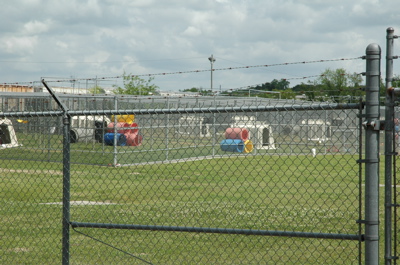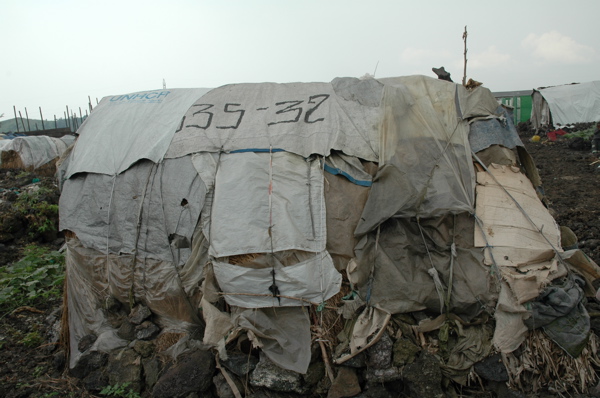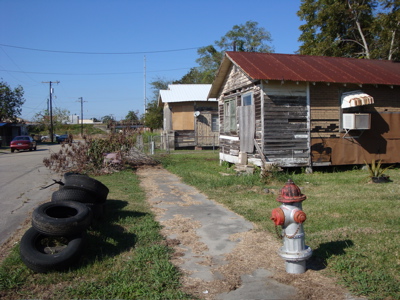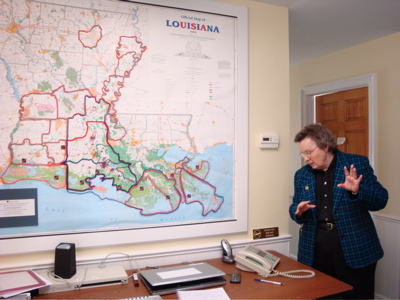
Money is being made from the apes. They can't talk for themselves but humans can. That is why humans in Congo are being ignored and have taken the place of animals.
~ Rwandan Tutsi on horrific treatment of Congolese non-combatants
....
But in no lab that I have visited have I seen so many chimpanzees exhibit such intense fear. The screaming I heard when chimpanzees were being forced to move toward the dreaded needle in the squeeze cages was, for me, absolutely horrifying.
~Jane Goodall on Apes in Louisiana Research Lab
....
Ten thousand miles separate these two stories, stories that incredulously demonstrate the manner in which human misery can be tuned-out in favor of animal rights by media reports that pander to what is "popular."
The email from Rwanda summed up the complete disconnect present in a recent New York Times article about the Democratic Republic of Congo. The NYT suggests that all is well since the mountain gorillas seem content.
A parallel story is being played out in a remote region of constantly storm-battered Louisiana, where the fate of monkeys and apes at the New Iberia Research Center has preempted stories of human misery in rural Louisiana's rural backcountry. The scrutiny of the non-human primates' living conditions prompted "horrified" outrage from no less than Jane Goodall -- outrage on behalf of the monkeys with no mention of Louisiana's rural poor.

Image: Monkey housing
Ironically, and within few days of the NYT signal of an "all clear" in Congo, animal rights groups in the United States and ABC News focused a laser beam on the story brewing in remote Louisiana regarding the alleged mistreatment of the research animals at the federally funded New Iberia center.
Last week, U.S. Agriculture Secretary Tom Vilsack ordered an investigation into allegations by the Humane Society that the New Iberia Research Center in Lafayette, the nation's largest primate research center, routinely mistreats chimpanzees and other primates. Vilsack's order was predicated on the ABC news report of an undercover investigation into the facility.
The media blast about the non-human primates took the steam out of a high-profile meeting Senator Mary Landrieu (D-La) scheduled with federal officials to examine post-hurricane conditions in New Orleans and south Louisiana.
Just as the war for Congo's resources has played out upon the backs of its innocent civilian population, so has the burden of the energy, research, and food needs of the United States been carried on the backs of the rural poor in the resource-rich Louisiana Delta.
The Humane Society is now pushing for a new federal law called the Great Ape Protection Act that would further protect the primates in research labs. Subsequently, the New Iberia Research Lab story has more legs than a millipede; the Congo conflict waxes and wanes with each news cycle; and Louisiana's Senator Landrieu cannot get support for legislation to create a 8/29 commission four years post Katrina, let alone national media coverage for her work in South Louisiana.
The amount of copy that the New York Times and other mainstream media has given to the Congo's mountain gorilla and Goodall's Chimpanzees would never pass the test of balanced reporting when compared to media analysis of the desperate plight of the human population in the Great Lakes region of Africa, not to mention south Louisiana. 1.2 million are displaced in Congolese IDP camps in conditions unfit for barnyard animals, yet The New York Times, which is Rwanda's main cheerleader in this blood-soaked region, has called the "all clear."
If the endangered mountain gorillas are any sign, things may finally be looking up in eastern Congo. In the past several weeks, Congo and its disproportionately mighty neighbor, Rwanda, have teamed up to sweep this area clear of rebels who had been at the center of a vicious proxy battle between the nations.

Tell the 1.2 million in the IDP camps that "things are looking up."
Meanwhile, Louisiana's poor human primates were shut out of the media cycle once again.
Shortly after the NYT painted its rosy picture of DRC, reams of print copy and zillions of Internet pixels touted U.S. Agriculture Secretary Vilsack's order for an investigation into the allegations by the Humane Society that monkeys are the victims of researchers' shenanigans.
"If the allegations prove to be true, Vilsack said, the American public can expect the perpetrators to be held fully accountable. I take the protection of animals very seriously, and will do my utmost to fully enforce the Animal Welfare Act."
The media rush to cover Vilsak and the New Iberia Primates buried Landrieu's tour of New Orleans with cabinet secretaries in charge of housing, FEMA officials, and representatives from Levees.org under a mountain of monkey dung. The planned high profile media tour included FEMA Administrator nominee, Craig Fugate.
It is well documented that FEMA not only criminally failed in providing immediate response to Hurricane Katrina, but also continues almost four years later to impede the flow of federal reconstruction money.
Who in the Obama administration will take the protection of humans in south Louisiana seriously? The barometer is not rising in favor of human rights in the White House. Secretary of State Hilary Clinton has already capitulated to the Chinese, the worst human rights abusers on the face of the earth as Obama begs for financial support from Beijing.
Lorna Bourg is President and Executive Director of the Southern Mutual Help Association of New Iberia. (SMHA) Bourg is a MacArthur Fellow and a graduate of Harvard's JFK School of Government Program for Senior Executives. Bourg has been around the delta region since the days when sugar ran slave operations.
Bourg can tell stories of the days in the 1970's when Patsy Sims documented a community of impoverished workers behind southern Louisiana's "cane curtain" in the book Cleveland Benjamin Is Dead! The cane plantations were "curtained" by rows of densely grown stalks that obscured the lives of the blacks who lived, worked, and died there.
Travel the back roads and bayous of Louisiana and it is not impossible to find people living in conditions that remind one of village life in Africa. In as many years, the delta region has experienced four major hurricanes. Traditional family fishing is in danger of losing access to waterways and environmental degradation may destroy the fisheries before the access vanishes. Many Cajun farmers are now sharecroppers to the multi-national sugar industry, and the people who support the oil and gas industry live in shacks a few blocks away from billion-dollar infrastructure.
SMHA has observed that millions in rural economic development dollars designed to be spent for economically distressed communities in Louisiana have virtually no impact on those communities.

Image: Human housing supporting oil infrastructure, Morgan City, LA
The same thing can be said for billions of dollars that have been pumped into African aid and the millions spent on conservation initiatives for the welfare of animals that has not reached the human population of conflict areas.
So, while the NYT signals that all is well in Congo because the mountain gorilla is well fed, a woman places her newborn baby on a tattered piece of cloth covering a bed of grass on lava rock. She has no cloth to cover the baby and no milk in her breasts to feed the child.
In New Iberia, cameras focus on elaborate caging and play areas for non-human primates while animal rights advocates are apoplectic hysterics, worrying about whether a research procedure might have caused distress to a baby monkey.

Image: Bourg and Impact Area
Bourg sees pain everywhere. "There is a lot of pain to go around in our rural communities that have experienced four major hurricanes," Bourg said in a phone conversation. "Unless we are able to take care of our human family as well as animals, we will not have evolved as a civil society."
Ten thousand miles away, in the forests of Virunga National Park, Emmanuel DeMerode head of the Virunga Park, spoke with journalists about the need to balance human and wildlife needs. He had agreed to allow access from the Kibati IDP camp to Virunga so that women could gather firewood.
After being appointed as chief warden in August last year, we removed the charcoal barrier at Kibati. We are still trying to a solution to the considerable damage that is being inflicted on the park as a result of my decision to abandon the barrier, but please understand that I do not believe that the wildlife should take priority over people's needs.
Across the street from the entrance gates of the New Iberia Research Center where chimps romp in state-of-the-art "primadomes", an old trailer home and dilapidated playground equipment mark the location for the local daycare facility for the human primates that inhabit this forgotten area of the United States.
